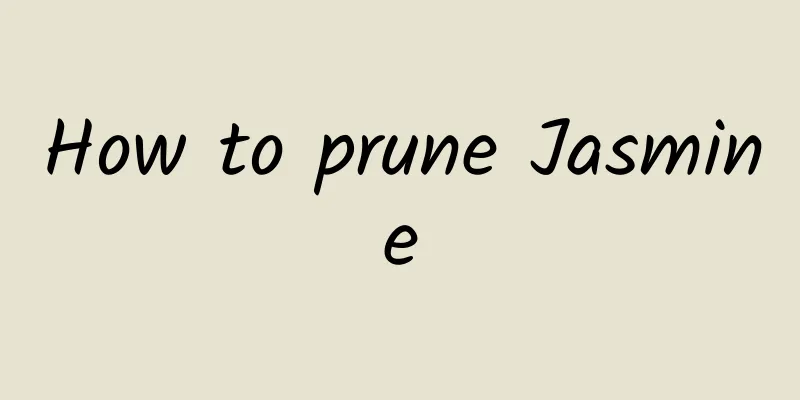How to prune Jasmine

When to prune JasmineJasmine can generally be pruned within 10 days after all the flowers have withered. The pruned branches of Jasmine can be used for cuttings, which is usually done in spring. Select ten-centimeter-long strong branches and insert them directly into the substrate, and they will soon take root. How to prune the branches of JasmineJasmine pruning is mainly to prune weak branches and diseased branches to ensure that the branches are evenly exposed. Because most of the branches of Jasmine are woody branches, it is best to use a pair of sharp scissors to ensure that the pruning cut is smooth and there is no split. The plant needs to be pruned in time after it blooms, and the withered flowers should be pruned off in time. After pruning, it will sprout new leaves. If the plant has branches that grow too long or too vigorous, the main branches can be shortened to promote the germination of the main branches. Jasmine pruning tipsWhen pruning Jasmine, you need to stop watering and keep the potting soil dry, which can effectively inhibit the growth of the plant. It is also preventive. After pruning, the plant's demand for water is reduced, the roots absorb water, and prevent the root water from being excessively damaged. Jasmine grows fast when prunedIf you want the jasmine to grow quickly, you need to top and pinch the plant in time to promote the sprouting of new buds at the bottom, so that it not only grows quickly but also maintains its natural beauty. Jasmine pruning and floweringIn order for the jasmine to bloom, when its new branches grow to 20-25 cm, the tops should be cut off, so that after waiting for germination, 3 to 5 branches will be left as main branches, which can promote the length of new shoots and the germination of flower buds. Tips for pruning JasmineAfter pruning the jasmine, it should be kept away from light, the incision should be kept smooth, and the incision should be coated with an antiseptic film to promote healing of the incision and prevent infection by rot bacteria. |
<<: How to prune a potted apple tree
Recommend
Can pesticide spraying and fertilizing be done at the same time?
1. Can it be done at the same time? If you want t...
When should taro be fertilized for high yield (name of fertilizer used for taro and time of fertilization)
Taro belongs to the yam family, such as potatoes,...
Do-it-yourself breeding is fun
Cuttings Cutting is a commonly used method of pro...
How to Make Plum Blossoms Bloom on New Year's Day
Actual flowering period Compared with other types...
Can peonies be transplanted in spring?
1. Is it possible to transplant? Spring is not su...
When is the best time to take cuttings of Clematis?
Clematis cutting time It is recommended to take C...
How to propagate Shibazakura and what to pay attention to
How to reproduce moss pink The main methods of pr...
Cultivation methods and precautions of money tree
1. Soil It is recommended to use loose, fertile, ...
The difference between White Bird and Silver Fingers
The difference in appearance The white bird looks...
This flower is like a small medicine box on the balcony. It will bloom out of the pot with just a little water. Everyone can grow it!
If you grow mint like this in summer, the pot wil...
Is Osmanthus fragrans suitable for indoor use?
1. Is it poisonous? Don't worry, it's not...
How to grow Patchouli
1. Maintenance methods 1. Temperature: Place it i...
A 0.1-meter-long green ivy, placed here, can actually grow 100 meters!
If you place the green ivy here, it will take ove...
Endless Summer cultivation methods and precautions
1. Maintenance methods 1. Temperature: The most s...
How to propagate autumn peony
The propagation method of autumn peony by divisio...









